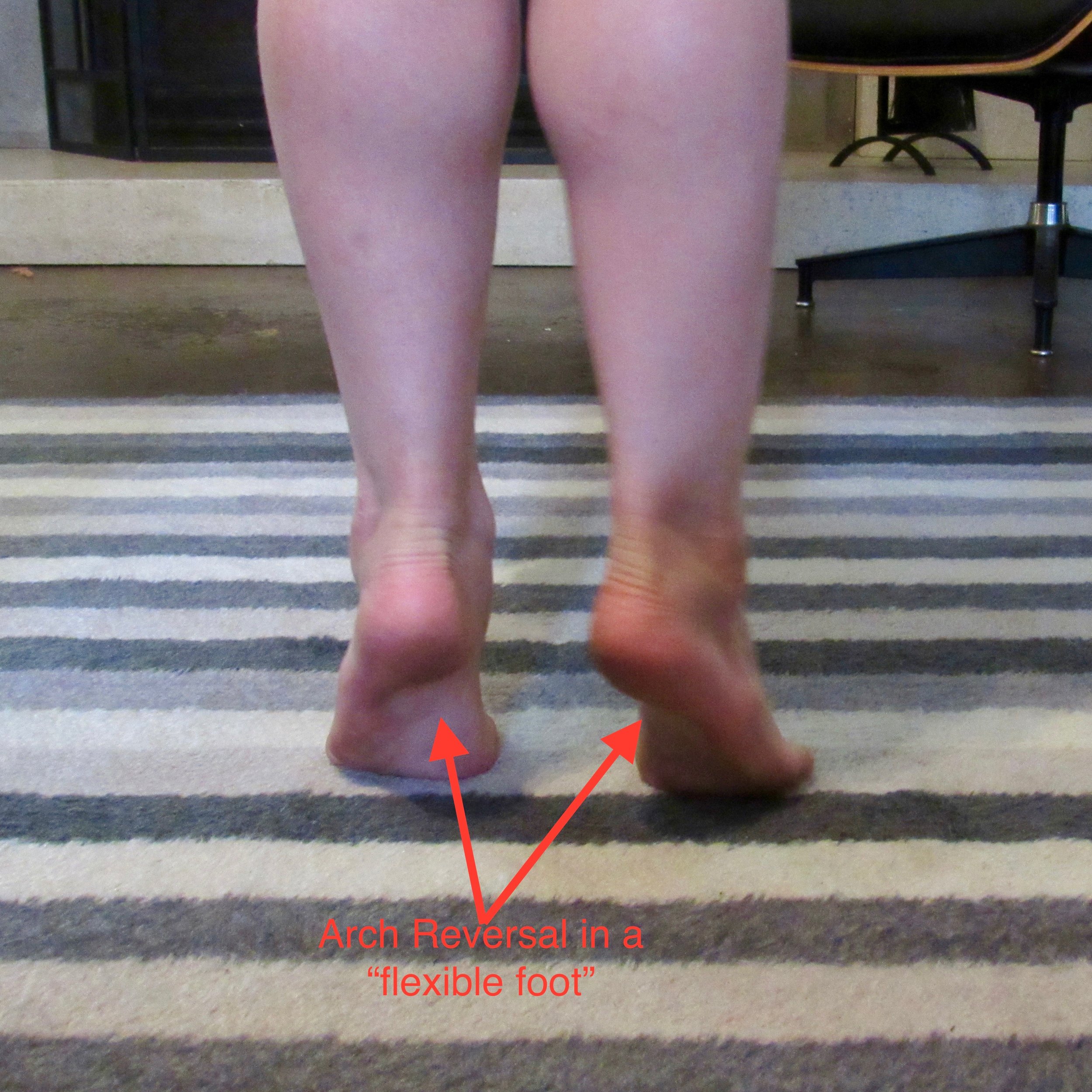Are Flat Feet Happy Feet?
My sister-in-law was a talented ballerina. As with most sports, genetics plays a huge roll in sport success. She was born with great lines including high arches in her feet making her point extra special.
As children start bearing weight through their legs, the muscles, bones and nerves in their feet begin to change. The arches in the feet form as the forces from the muscles and gravity shape the body. It’s physics and it’s pretty cool how the pull of external forces impact our body’s structural development. I could go on for pages about the dorky concepts of force and Wolff’s law, but I’ll spare you the details today. Instead, let’s focus on the optics of feet; specifically, let’s focus on flat feet. (Flat feet is referred to as "pes planus" in the medical world).
A huge concern I hear from parents is about foot appearance as their child grows. Typically, parents raise concerns when children have feet that appear flat. The flat foot posture becomes more noticeable as the child becomes more active with walking, running, jumping, and higher level coordination skills as they hit 4-6 years of age.
Flat Feet or "Pes Planus" observed in a typically developing child
What is typical in the flat foot posture?
As we grow, foot shape is extremely malleable. We all start with a completely flat-footed position and then develop the arches of our feet as our muscles grow to support our bodies with age. This flat-footed appearance usually resolves by the time the child reaches adolescents and sometimes, does not resolve at all. It is very common for most children under age 7 to have exaggerated flat-footed posture without symptoms of pain or functional limitations.
Keys to "happy" flat feet in children:
Painless
Flexible
Does not change or impair function (child’s ability to move)
A "flexible" flat foot reverses the arch during a heel raise
Conclusion:
In most cases, the pes planus foot posture is not a huge concern and is difficult to correlate with future functional problems; however, parents need to be aware of abnormal signs in foot development.
What abnormal signs to look for:
Excessive falling/tripping
Pain- this is the biggest flag; if your child is complaining of pain in his feet or legs after normal daily activity consult your physical therapist or healthcare professional to address the problem
Loss of flexibility in feet (unable to “reverse the arch” during a heel raise) or unable to perform a heel raise
Loss of function; unable to perform typical daily activities like walking, running, jumping, etc.
Please contact your healthcare provider including us at Boost Babies, LLC in Austin, Texas with any questions or concerns.
Pediatric physical therapy improves the muscle balance in the lower extremity and directly effects the foot shape as the child grows. Wellness classes provide the building blocks that impact your child's foot health over the lifespan.
I am happy to answer questions via emails and text messages anytime! Stay tuned for more future posts on the feet including toe walking. I am also working on a special walking inservice that will be available soon! Yay, baby health!!!



